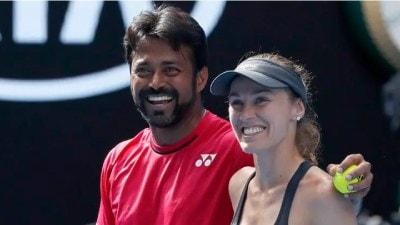Red flag, so no economic progress
The most intriguing feature of the World Economic Forum8217;s India Summit last month was that both the Prime Minister and the Finance Mini...

The most intriguing feature of the World Economic Forum8217;s India Summit last month was that both the Prime Minister and the Finance Minister talked as if they were consultants to the Government of India instead of the GoI itself. In long, dreary speeches both need new speechwriters they outlined what needed to be done to improve the Indian economy instead of taking responsibility for not doing what needed to be done. Puzzled, we pondered over this weird behaviour and after pondering long and hard realised that these two soldiers of economic liberalisation were trying to say that they would like to make changes they knew urgently needed to be made but they were not in a position to make them.
There are constraints. These come in the depressing form of the Lefties, jholawalas and povertarians who fill the ranks of Sonia Gandhi8217;s National Advisory Council and who have taken full advantage of her economic illiteracy. Mrs G has proved that politically she is cleverer than any native politician but when it comes to economic ideas she remains naive. It is this that her Marxist advisors have used to persuade her to put her name to the unworkable employment guarantee bill and the appalling tribal rights bill. Both have been done in the name of the 8216;8216;poor8217;8217; but if Sonia had not been an apolitical housewife in our days of Nehruvian socialism she would have realised that this kind of scheme was tried often in the past with disastrous results. The poor remained poor and a vast infrastructure of vested interests got created that served mainly to make a few officials rich. If we dismantled this infrastructure and handed the money physically by money order as the Planning Commission once suggested to every poor Indian we would eliminate poverty faster.
But, we cannot do this because parties like the CPIM Communist Party of India-Marxist have a vested interest in keeping poverty alive. How else to explain West Bengal8217;s hideous poverty despite three decades of Marxist rule?
Sitaram Yechury, the CPM8217;s resident intellectual, wrote an article last week in which he explained the Marxist opposition to economic liberalisation. His first problem is that 8216;8216;unbridled liberalisation has led to glaring economic inequalities8217;8217;. Were they not there before? And, is it not true that there are fewer Indians living below the poverty line 26 than ever before?
Comrade Yechury believes that economic reforms are 8216;8216;solely preoccupied with raising corporate profits8217;8217; and not with the welfare of the people. This is almost too stupid a charge to answer but I am going to answer it. What liberalisers like your humble columnist want is for the state to stay away from 8216;8216;corporate profits8217;8217; and concentrate on its duties to the poor. Instead of running huge public sector companies at huge losses it should spend its resources on building schools, hospitals, roads, low-cost housing, sanitation and all the other things poor Indians are forced to live without.
India8217;s poverty is scandalous because it is so unnecessary. A country as rich in resources of every kind should be among the richest in the world and if we are not it is because we have followed bad economic policies. The kind Comrade Yechury would have us return to.
He laments 8216;8216;reduction of government expenditure8217;8217; without admitting that the hated liberalisers are only asking that government learn to spend taxpayers8217; money better. If the comrades were sincere in their concern for the poor they would have suggested that the National Advisory Council examine the plethora of poverty alleviation schemes that already exist and see whether they have worked at all. Instead, we have more expensive, grandiose schemes that will go the way of the others because nobody has bothered to understand what went wrong with the ones that went before.
It has been said before in this column and I say it again this week the Marxists have a long history of opposing anything that benefits India. Sonia Gandhi needs to beware of finding herself in the same category. Instead of being so cozy with the comrades she would be doing herself and India a huge favour if she spent more time trying to understand why her handpicked Prime Minister and Finance Minister gave up Marxism for the market.
It is a harsh, uncompassionate place the free market and there is no question that state intervention is required to ensure the welfare of the weakest and the poorest. Now, more than ever this intervention is required. Why is it not happening? Why does the Government of India spend only 2 of its budget on education when little Bangladesh spends 18? Why does India have one of the highest infant mortality rates in the world and the lowest school enrollment? Could it be because state intervention in India has traditionally been of the wrong kind?
Write to tavleensinghexpressindia.com
- 01
- 02
- 03
- 04
- 05































